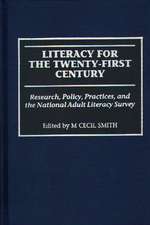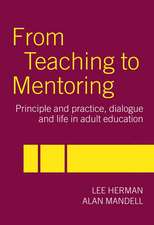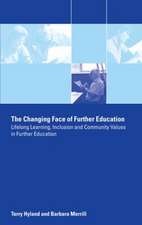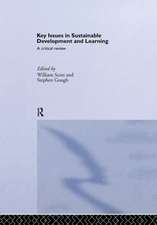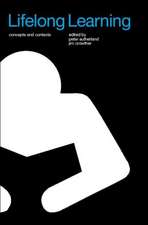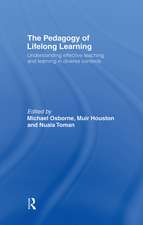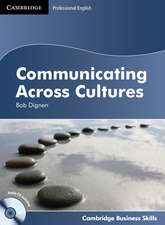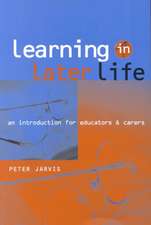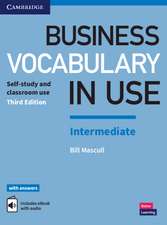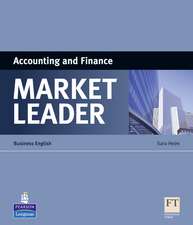Delta Natural Business English B2-C1. Coursebook with Audio CD: Delta Natural English
Autor Bill Mascullen Limba Engleză Paperback – sep 2017
Preț: 219.98 lei
Nou
Puncte Express: 330
Preț estimativ în valută:
42.09€ • 44.07$ • 34.83£
42.09€ • 44.07$ • 34.83£
Carte disponibilă
Livrare economică 11-17 martie
Livrare express 04-08 martie pentru 30.42 lei
Preluare comenzi: 021 569.72.76
Specificații
ISBN-13: 9783125013353
ISBN-10: 3125013356
Pagini: 120
Dimensiuni: 207 x 294 x 10 mm
Greutate: 0.42 kg
Editura: Delta Publishing
Colecția Delta Publishing by Klett
Seria Delta Natural English
ISBN-10: 3125013356
Pagini: 120
Dimensiuni: 207 x 294 x 10 mm
Greutate: 0.42 kg
Editura: Delta Publishing
Colecția Delta Publishing by Klett
Seria Delta Natural English
Notă biografică
I've always been interested in language, languages and language learning, ever since an uncle lent me his Teach Yourself Serbo-Croat. This book seemed extremely exotic in 1950s south London, and was one of the things that got me interested in languages at school. In our first year French coursebook, I was intrigued by a certain Monsieur Oublietout (Forget-all) who was asking his way to, of all places, the barracks. Memories of this has meant that, in my own materials writing, appropriate language input for the level has been one of my aims.
A Spanish degree at Edinburgh University followed, and then a gap year travelling around Latin America. On returning, a year of teacher training, specialising in English in UK secondary schools, persuaded me that adult ELT might be more in my line, and I joined an adult education organisation in Sweden called Folkuniversitetet.
Apparently it was the fact that I'd mentioned the Andes on my CV that encouraged Folkuniversitetet to send me to the Swedish far north. But it was working with managers at a mining company up there that interested me in business English. They were dealing with mining projects around the world, and I was drawn by the attraction of teaching the language as a means of international communication, rather than the then twee EFL of red telephone boxes and Tower of London beefeaters. (A relatively light schedule allowed time for a lot of cross-country skiing on floodlit tracks during those 20-hour-long arctic winter nights.)
I then did a very congenial MA for English Language Teaching at Lancaster University, at a time when discourse analysis was all the rage, and I'm still interested in that, but the real revolution in language teaching brought about by corpus analysis was still ten years in the future. By this time I was in France, working mainly in private language schools, teaching English and training teachers, first in the south and then in Paris. Between the two, I did a postgraduate management qualification at Aix-Marseille University. This gave me a good overview of some of the things that my in-company students had been talking about: strategy, marketing, accounting and so on. (It also convinced me of the effectiveness of listening - 600 hours of lectures in French were extremely good input from the language-learning point of view.)
My first sight of a Cobuild dictionary was a revelation - the examples were taken from large databases of actual language use, rather than coming off the tops of lexicographers' heads. I was inspired to contact Cobuild and to start writing corpus-based books for them, including Key Words in Business. These books launched me on a writing career, and for the last 20 years I've been living in Bristol in the west of England, working as a full-time writer, producing course books (including Best Practice for National Geographic/Cengage, with Jeremy Comfort), teachers' books, self-study vocabulary books and contributing in various ways to business dictionaries (for both Pearson/Longman and Cambridge University Press).
I've always thought that in the language teaching business we should continue to try to learn other languages, if only to remind ourselves just how difficult the process can be! I go back to France several times a year, and it's fascinating to see how French is evolving from the language that I discovered at school. And every year I go camping and walking in Scotland, where part of the pleasure is to get your tongue round those beautiful Gaelic place-names. But I never did learn Serbo-Croat.
A Spanish degree at Edinburgh University followed, and then a gap year travelling around Latin America. On returning, a year of teacher training, specialising in English in UK secondary schools, persuaded me that adult ELT might be more in my line, and I joined an adult education organisation in Sweden called Folkuniversitetet.
Apparently it was the fact that I'd mentioned the Andes on my CV that encouraged Folkuniversitetet to send me to the Swedish far north. But it was working with managers at a mining company up there that interested me in business English. They were dealing with mining projects around the world, and I was drawn by the attraction of teaching the language as a means of international communication, rather than the then twee EFL of red telephone boxes and Tower of London beefeaters. (A relatively light schedule allowed time for a lot of cross-country skiing on floodlit tracks during those 20-hour-long arctic winter nights.)
I then did a very congenial MA for English Language Teaching at Lancaster University, at a time when discourse analysis was all the rage, and I'm still interested in that, but the real revolution in language teaching brought about by corpus analysis was still ten years in the future. By this time I was in France, working mainly in private language schools, teaching English and training teachers, first in the south and then in Paris. Between the two, I did a postgraduate management qualification at Aix-Marseille University. This gave me a good overview of some of the things that my in-company students had been talking about: strategy, marketing, accounting and so on. (It also convinced me of the effectiveness of listening - 600 hours of lectures in French were extremely good input from the language-learning point of view.)
My first sight of a Cobuild dictionary was a revelation - the examples were taken from large databases of actual language use, rather than coming off the tops of lexicographers' heads. I was inspired to contact Cobuild and to start writing corpus-based books for them, including Key Words in Business. These books launched me on a writing career, and for the last 20 years I've been living in Bristol in the west of England, working as a full-time writer, producing course books (including Best Practice for National Geographic/Cengage, with Jeremy Comfort), teachers' books, self-study vocabulary books and contributing in various ways to business dictionaries (for both Pearson/Longman and Cambridge University Press).
I've always thought that in the language teaching business we should continue to try to learn other languages, if only to remind ourselves just how difficult the process can be! I go back to France several times a year, and it's fascinating to see how French is evolving from the language that I discovered at school. And every year I go camping and walking in Scotland, where part of the pleasure is to get your tongue round those beautiful Gaelic place-names. But I never did learn Serbo-Croat.

